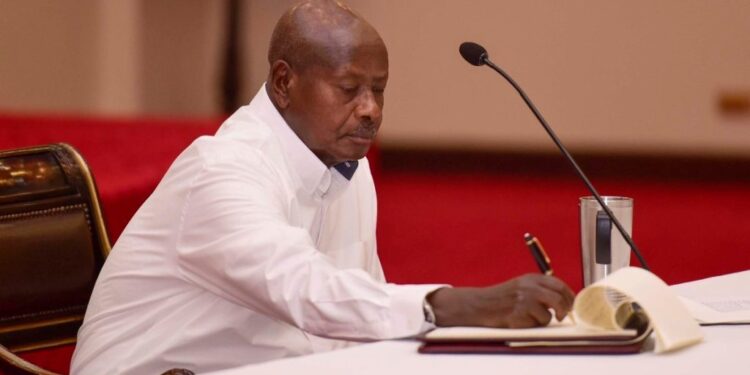President Yoweri Kaguta Museveni has officially assented to a set of critical tax, trade, and appropriation bills, paving the way for the full implementation of Uganda’s national budget for the 2025/2026 financial year.
In a statement shared on his official X account, the President announced the signing of nine bills into law, including amendments to major tax statutes and trade regulations.
These legislative updates are part of the government’s wider efforts to strengthen domestic revenue mobilisation, streamline tax procedures, and enhance fiscal discipline.
The newly signed laws include: The Value Added Tax (Amendment) Act, 2025; The Stamp Duty (Amendment) Act, 2025; The Excise Duty (Amendment) (No.2) Act, 2025; The Tax Procedures Code (Amendment) Act, 2025; The Supplementary Appropriation Act, 2025; The Hides and Skins (Export Duty) (Amendment) Act, 2025; The External Trade (Amendment) Act, 2025 and The Appropriation Act, 2025.
The signed Appropriation Act gives legal effect to the national budget, authorising government expenditure for the financial year beginning July 1, 2025. The Supplementary Appropriation Act covers adjustments to prior allocations, allowing the government to account for urgent or unforeseen expenditures.
The tax-related amendments are expected to update Uganda’s revenue collection framework in line with evolving economic realities. These include adjustments in VAT, excise duty on specific goods and services, stamp duty charges, and trade tariffs, particularly on exports of raw materials like hides and skins.
Fiscal analysts note that the updates will support the Uganda Revenue Authority in meeting its revenue targets and align with the government’s push to reduce reliance on external borrowing.
The signing of these bills follows their passage by Parliament earlier in June as part of the final phase of the 2024/25 budget cycle. With the legislation now in effect, implementation of Uganda’s Shs 72 trillion budget for FY2025/26 can proceed.









